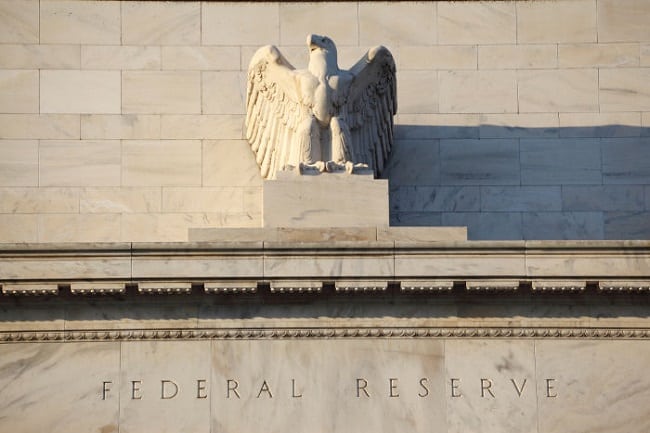In a press conference on Wednesday, US Fed chair Janet Yellen said that the hike decision “reflects our assessment that a gradual removal of monetary policy accommodation will sustain a strong labour market while fostering a return of inflation to 2%”.
The hike leaves US interest rates at their highest level since the fall of Lehman Brothers and the financial crisis.
Yellen, who will be replaced as chair by Jay Powell early next year, said she expected the labour market to strengthen further in the coming months before leveling out as monetary policy tightened.
“Allowing the labour market to overheat would raise the risk that monetary policy would need to tighten abruptly at a later stage, jeopardising the economic expansion,” she said.
Olivier Marciot, investment manager on Unigestion’s multi-asset Navigator fund, said it was a strong sign the US was entering a “new era”, one in which “the Fed believes that growth is sustainable enough to bring monetary policy back to ‘normal’ levels”.
No move by BoE
In contrast, the Bank of England confirmed on Thursday that the UK base rate will remain at 0.5%, not moving on the initial hike last month which marked the first rate rise in the UK for a decade.
It follows recent news that inflation breached the BoE’s self-imposed upper 3% target in October, which will result in a letter from governor Mark Carney being sent to the Chancellor explaining the measures underway to bring inflation back from the current level of 3.1%.
However, the MPC said it “judges that inflation is likely to be close to its peak, and will decline towards the 2% target in the medium term”, in Thursday’s announcement.
Nancy Curtin, CIO at Close Brothers Asset Management, said: “Inflation may have hit a near six-year high, it’s clear that now is not the time for a further rate rise.
“Even last month’s decision may have been too hasty given the strain the economy is under, and we certainly don’t expect further moves from the MPC in the short term.”
China follows
Meanwhile, the People’s Bank of China (PBoC) also raised its key policy rates by five basis points (bps), soon after the Federal Reserve’s announcement.
The bank raised the rates of its seven-day and 28-day reverse repurchase agreements and its one-year medium-term lending facility to 3.25%.
Bill Adams, senior international economist at the PNC Financial Services Group, said: “With Chinese inflation benign, global growth broadening, and interest rates in developed economies still relatively low, there seems little risk that China’s interest rate hikes will derail the country’s expansion.
“Over time, higher interest rates could crimp cashflow for highly leveraged businesses, but that seems like a limited risk at present.”







